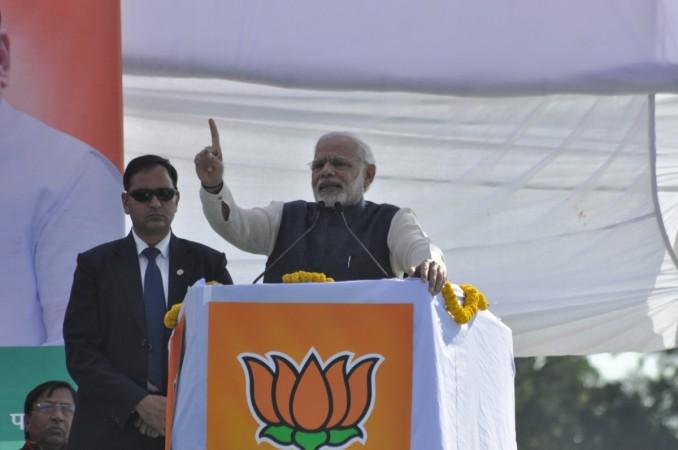
On January 2, 2017, Narendra Modi, the prime minister of the world's fastest-growing economy, will be addressing a BJP rally, marking the first major speech by the 66-year-old leader after the end of the demonetisation deadline of December 30, 2016. His speech will be keenly watched not only by party workers and political rivals but also by millions of stock market investors on the first trading day of calendar 2017. They could well celebrate the New Year with a rally if there is something positive. On the other hand, anything perceived as negative would dampen the party.
Sensex gains 400 points, Nifty up 1.6%; ITC, Tata Steel, Adani Ports lead rally
The speech will be an opportunity for the BJP to sound the poll bugle for the UP Assembly elections due in March next year, and therefore, market analysts would expect Modi to spring another surprise, on the lines of his demonetisation decision of November 8, 2016.
The significance of the speech also stems from the fact that it is likely to be the last major political address by the ruling party's top election campaigner before the presentation of Budget 2017 and the implementation of the model code of conduct; in that sense, sops, if any, could be announced from that forum.
The prime minister has been repeatedly saying that the currency ban decision should be seen as a short-term pain that will be followed by long-term gains. The January 2 rally could well be the opportunity to tell Indians about the gains that he planned in return for the pain endured by Indians for 50 days.
He could also use the forum to blunt the argument that the crackdown on the corrupt will translate into tangible benefits for the common people who waited for hours in long queues to withdraw their own money.
Stock market analysts would look for signals from his speech on not only how the government intends to distribute the windfall from the demonetisation decision and proceeds of the income tax amnesty scheme, but also for a tone of the Budget 2017.
It may be recalled that the first four-month long amnesty scheme — the Income Declaration Scheme 2016 — is likely to increase the government's coffers by about Rs 30,000 crore.
"Income Declaration Scheme 2016 unearths Rs 65,250 crore of hitherto Undeclared Income and Assets; 64,275 declarations filed under IDS-2016 up to the midnight of 30th September 2016," the finance ministry said on its official Facebook page on October 1, 2016.
Based on the 45 percent tax applicable to the income disclosed according to the scheme, the government will get Rs 29,362.5 crore.
The second amnesty scheme — Pradhan Mantri Garib Kalyan Yojana, 2016 — that imposes a harsher penalty on those coming clean on undisclosed income will be effective from December 17 to March 31, 2017.
The government has also said that raids on black money hoarders and tax evaders have resulted in the seizure of crores of cash and jewellery, besides admission to undisclosed income.
On Wednesday, the BSE Sensex ended at 26,210, almost flat to its Tuesday close.








